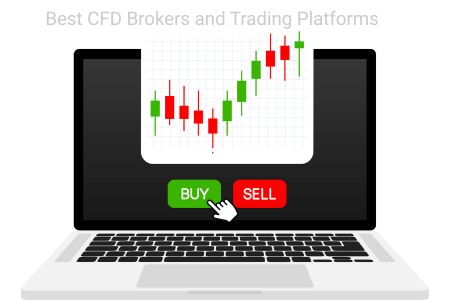Understanding the Best CFD Trading Regulations in 2023

The Importance of the Best CFD Trading Regulations
In the dynamic world of finance, contracts for difference (CFDs) have emerged as a popular trading option among investors seeking to capitalize on price movements without owning underlying assets. However, as the CFD market grows, the importance of robust regulations becomes essential to protect traders and ensure market integrity. This article delves into the best CFD trading regulations, highlighting their significance while guiding investors on how to navigate this exciting yet complex market. For more information about regulated brokers, visit best cfd trading regulations bestbrokercfd.com.
What are CFD Trading Regulations?
CFD trading regulations are a set of legal requirements that govern how brokers operate and interact with traders. These regulations are designed to provide transparency, protect investor funds, ensure fair practices, and promote market stability. Regulatory bodies oversee compliance, monitoring brokers to ensure they adhere to their obligations.
Why are Regulations Essential?
The significance of CFD trading regulations cannot be overstated. They foster a secure trading environment, ensuring that traders can execute their strategies with confidence. Key reasons why regulations are essential include:
- Protection of Investor Funds: Regulations require brokers to segregate client funds from their operating capital, minimizing the risk of misuse.
- Transparency: Regulatory frameworks ensure that brokers provide clear information regarding fees, spreads, and risk factors associated with CFDs.
- Fair Trading Practices: Regulations prevent brokers from engaging in fraudulent practices, such as price manipulation or unauthorized trading.
- Dispute Resolution: Most regulatory bodies provide mechanisms for resolving conflicts between traders and brokers, offering an avenue for justice.
Major Regulatory Bodies in CFD Trading

Several prestigious regulatory bodies govern CFD trading in different regions. Each authority has its guidelines and standards that brokers must meet. Here are some of the most recognized regulators:
1. Financial Conduct Authority (FCA) – United Kingdom
The FCA is one of the most respected regulatory bodies globally. It oversees the financial markets in the UK, ensuring all brokers adhere to strict standards. FCA-regulated brokers are required to maintain sufficient capital and provide clients with fair dealing practices.
2. Cyprus Securities and Exchange Commission (CySEC) – Cyprus
CySEC is known for its relatively lenient regulatory environment, making it a popular choice for many CFD brokers. While it offers a solid regulatory framework, traders should still conduct thorough research before choosing a broker regulated by CySEC.
3. Australian Securities and Investments Commission (ASIC) – Australia
ASIC is known for its strong compliance and regulatory measures. Brokers operating under ASIC regulations are required to adhere to strict standards concerning client protection and transparency.
4. Commodity Futures Trading Commission (CFTC) – United States

The CFTC is responsible for regulating the U.S. derivatives markets, including CFDs. Trading CFDs is not widely accepted in the U.S., making this regulatory environment unique.
Key Regulations That Matter for Traders
Understanding specific regulations can empower traders to make informed decisions. Here are some key regulations that impact CFD trading:
- Leverage Limits: Many regulatory bodies impose limits on the leverage brokers can offer to protect traders from excessive risk. For instance, the FCA restricts leverage to 30:1 for retail clients.
- Negative Balance Protection: This regulation ensures that traders cannot lose more money than they have in their accounts, protecting them from unmanageable debt.
- KYC and AML Policies: Know Your Customer (KYC) and Anti-Money Laundering (AML) policies require brokers to verify clients’ identities, reducing the risk of fraud.
- Periodic Reporting: Brokers must regularly submit reports to regulatory bodies, ensuring ongoing compliance and transparency.
Choosing a Regulated CFD Broker
When selecting a CFD broker, it’s crucial to ensure they are regulated by a reputable authority. Here are some steps to aid in your research:
- Check Regulatory Status: Always verify if the broker is listed on the regulatory body’s website.
- Read Broker Reviews: Look for reviews and feedback from other traders to gauge the broker’s reputation and reliability.
- Understand Their Offerings: Ensure the broker’s offerings align with your trading needs, including available instruments, leverage, and spreads.
- Examine Their Platforms: Evaluate the trading platforms offered for ease of use and functionality.
Conclusion
CFD trading regulations provides essential protection and contribute to a fair and transparent trading environment. By understanding the best CFD trading regulations and choosing reputable, regulated brokers, traders can enhance their trading experience and reduce risks. Always stay informed and vigilant as you navigate the world of CFDs.

